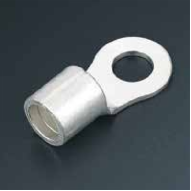Landline: 0769-8228-5430
Landline: 4000-199-938
Mobile: 133-7776-1887 (Mr. Wu)
Q Q: 443-624-232
Email: 18616886626@163.com
website:en.dgqxd.com
Address: No. 3, Lane 20, Yuanzaotou, Xiabian, Chang'an Town, Dongguan City
As an important medium for power transmission, high-voltage cables have many advantages such as outstanding electrical functions, heat resistance strong mechanical functions.Cable joints have been widely used in power system transmission distribution in recent years; but high-voltage cables are difficult to avoid their own existence. Defects, especially in the process of making high-voltage cables, it is difficult to ensure that their insulation is certainly intact. When installing laying cables, the insulation is simply damaged by squeezing due to mechanical forces, more importantly, due to moisture soil erosion after long-term use If the insulation is corroded damaged, these dangers will eventually cause breakdown of the insulation of the high-voltage cable. Due to the particularity of its laying, high-voltage cables are very difficult to troubleshoot repair.
Cable partial discharge positioning method
When detecting the discharge of the cable, if the orientation of part of the power supply can be found, the efficiency accuracy of the discharge detection will be greatly improved. In order to achieve this intention, the time domain reflection method is usually used to determine the orientation of the discharge, that is, Tim Domain Reflectometry.TDR. The application mechanism of this method is as follows: the pulse detection equipment is installed at one end of the cable, the reflection principle caused by the partial discharge pulse is transmitted in the cable, so as to obtain the data of the same pulse transmitted back forth in the cable the time difference data, then use to find the pulse Orientation to determine the orientation of part of the power supply. If the partial discharge signal coupling equipment is installed at the near end of the cable, the pulse current method can be used to detect the impedance. Of course, the orientation of the discharge pulse signal can also be found through high-frequency current sensors. Once the cable connector is partially discharged, the generated pulse will form two signals with the same amplitude be transmitted in the opposite direction in the cable line. Different signals will have different transmission times, using the delay of the arrival of the two signals Poor, while referring to parameters such as the transmission speed of the pulse in the cable, can roughly determine the area the partial discharge pulse is announced. Similarly, when performing live detection on the power cable, the sensor can also detect similar burst signals. The direction of the local discharge source can be initially determined using its direction. Only by locating the position of the partial discharge source can the faulty location be found further Take measures to eliminate faults to ensure the normal operation of the cable.

 |
| Contact QR code |